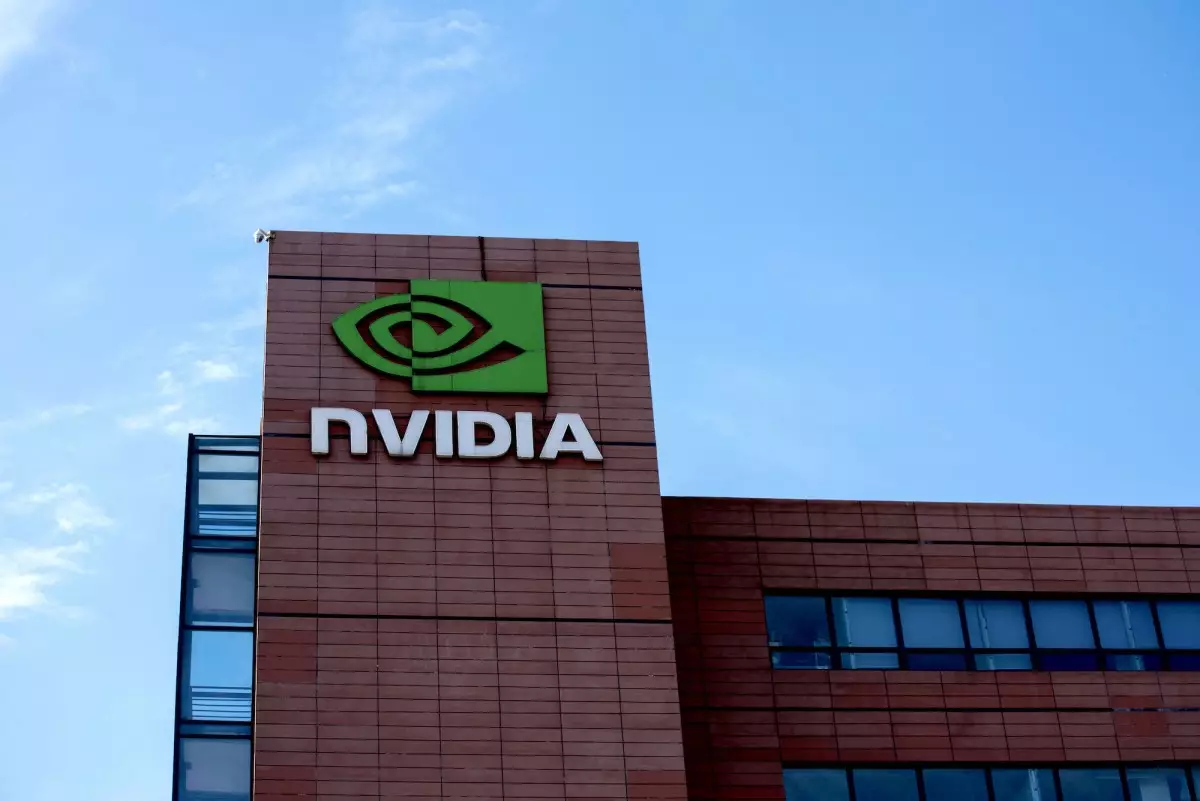The world of artificial intelligence is undeniably a battleground for tech supremacy, with financial and strategic interests intersecting in profound ways. Nvidia, as a powerhouse in AI chip manufacturing, stands at the precipice of this tension. Recent developments reveal that CEO Jensen Huang managed to negotiate a significant arrangement with the Trump administration to safeguard Nvidia’s H20 AI chips from stringent export limitations.
These H20 chips represent a critical asset in the ongoing U.S.-China tech rivalry. While they are modified versions, deliberately limited in performance to navigate regulatory hurdles, they nevertheless power advanced technologies, including the formidable R1 AI model by China’s DeepSeek, which has proven to challenge its U.S. counterparts. The fact that these chips were at risk of restrictions due to national security concerns underscores the delicate balance between fostering innovation and protecting intellectual property.
A Surprise Encounter at Mar-a-Lago
The intriguing detail of Huang’s negotiations, purportedly conducted over dinner at Trump’s Mar-a-Lago resort, paints a vivid picture of high-stakes diplomacy within the tech sector. It suggests that personal relationships still play a pivotal role in shaping business environments and regulatory landscapes. The prospect of Huang’s unwinding strategy—promising investments into AI data centers in the U.S. in exchange for leniency—reveals a dynamic interplay between corporate interests and political maneuvering.
Such exchanges bring to light a controversial issue: to what extent should national economic policies be influenced by individual corporate decisions? Huang’s vow to contribute to U.S. AI infrastructure raises questions about the motivations behind such investments. Is it a genuine commitment to national progress, or a tactical play to safeguard Nvidia’s financial stability and market position?
Mixed Reactions and Forward-Looking Challenges
Response from the semiconductor community has been polarized. While some applaud Nvidia’s ability to navigate the complexities of U.S. export restrictions, others voice concern over the implications of continued technology transfer to China. The H20’s continued export could be interpreted as an inadvertent weakness in U.S. efforts to curb China’s technological ascendancy, especially given the bipartisan calls for tighter restrictions.
The Trump administration’s decision to maintain chip export rules implemented by President Biden adds another layer of complexity. The view that these regulations are “unprecedented and misguided” reflects a growing sense of frustration within the industry, suggesting that existing policies may be counterproductive in fostering innovation. By restricting exports to nations, including allies, these rules could hinder U.S. viability in the fast-evolving global tech landscape.
AI Nationalism: The New Frontier
Huang’s maneuverings highlight a broader trend of “AI nationalism,” where companies strategically align their plans with national interests to mitigate regulatory pressures. This reflects a more profound societal shift, wherein technological advancements are increasingly viewed through the lens of national security rather than mere corporate profitability. Such an environment complicates the typical relationship between commerce and government, as companies maneuver through layers of compliance that intertwine economic ambitions with state agendas.
Competitors to Nvidia, such as OpenAI and Microsoft, have also adjusted their strategies to align with this new paradigm. The Stargate Project, which aims for a colossal investment in U.S. data centers, serves as a reference point for how tech firms are reshaping their narratives to resonate with government interests. The billion-dollar commitments highlight a growing trend among tech giants to prioritize national mandates while simultaneously expanding their operational capacity and influence.
The Future of U.S.-China Tech Relations
As the geopolitical landscape continues to evolve, the ramifications of Nvidia’s negotiations may resonate far beyond the immediate implications surrounding the H20 chips. The very fabric of international tech relations hangs in the balance, influenced by the underlying current of competition and collaboration. The question remains: can innovation thrive in an environment shaped by such intense rivalry?
Huang’s deal with the Trump administration appears to embody a precarious balance, where industry leaders find themselves negotiating between corporate aspirations and the shifting tides of national policy. The outcome may hold the key to not only Nvidia’s future but also the broader course of AI development across the globe. The stakes are high, and the outcome remains uncertain—this is not merely about chips; it’s about the future of technology as we know it.

